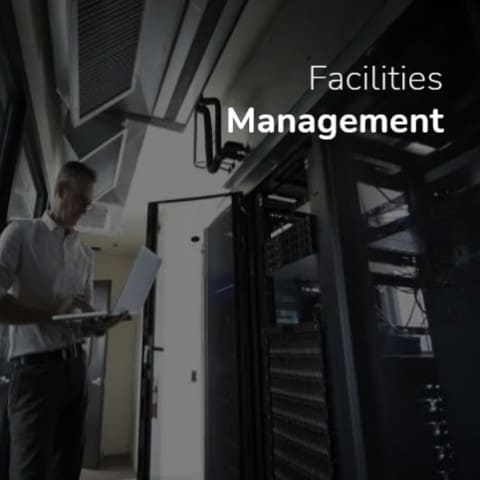Procurement is a word not understood by many outside the industry. We want to break it down and give a brief understanding of what it means and how it works.

Flickr – John Dalkin
What is procurement?
Procurement is an acquisition process used to secure services, goods and work from external sources. External to your organisation, company, institution, charity or own person. Before an agreement can be reached, the external source must be appropriate and provide you with a solution to your problem. Following that decision, price or cost need to be satisfactory. Large public and corporate organisations like to promote choice and greater competition with procurement and acquisition programs. Choice and quality go a long way in business. Ultimately everyone can benefit.

Flickr by Ben Daines
Types of procurement
Direct procurement – Often associated with raw material and production of goods.
Indirect procurement – Often associated with maintenance, facilities, repair & operating supplies. This more likely to be in Capitals remit.
Procurement process life cycle
- Identifying needs
- Researching and identifying suppliers
- Making contact and communication with supplier
- Negotiation of terms
- Assessing supplier service
- Satisfaction and payment
Research from 2011 by Ardent Partners found that procurement departments manage 60.6% of total enterprise spend and on average make savings of 6.7% annually. This is evidence of how crucial procurement is to the running of a business and ROI.
Comments
After the publication of this blog post it was shared on various linked in groups. Below are some of the response we had in response to our definition. [Update – 10th July 2014]
Comments from Data Centre & Build Professionals – LinkedIn
- Adrian Gamory – Director of Client Services at Sabey Data Centres Corporation
Procurement. A group of individuals whose main focus is to negotiate so that you work/sell hardware for free.
- Kelly Drake – Project Manager at Critical Power Exchange
The act of obtaining equipment, materials, or supplies.
- Clarke Drummond – Account Executive at NetGain Technologies INC.
The process of acquisition
- Roy Culligan – Critical Facilities Specialist & Consultant
The article is fine but I reckon there’s one huge omission and that is the relationship between the procurement team and the team who require the goods in the first place.
Quite often, the teams wish to procure goods themselves and believe handing this duty over to another team is time wasting and reducing the content of their own CVs.
I have seen IT and Facilities teams really reluctant to use Procurement as they firmly believe that whilst they want quality goods from known suppliers (sometimes only small suppliers), the Procurement team want the cheapest product available. Conversely, Procurement think the technical teams are amateurs and should simply leave buying to the experts. So with these beliefs, their joint relationship is strained as they are poles apart.
It is absolutely fundamental that they all get together and share their own concerns in an open manner so they get to fully understand each other’s concerns and what they can each bring to the party to make it best practice for the whole company. Doing it this way will see the back of the horror stories such as IT teams unintentionally committing to a 20 year maintenance contract with legitimate annual charge increases to Procurement teams buying unbeknown sub-standard kit due to the fact that it was far cheaper than the competition and they had met their targets.
- Gordon Paddy – Data Centre Advisory Specialist
Could not agree more with Roy’s view!
In the Critical Infrastructure world there are so many more considerations than the price. Actually same goes for any kind of procurement when i consider the years I spent in Project management in the construction and electical contracting businesses.
Comments from Cleaning & Maintenance Magazine – LinkedIn
- Kevin Carter – CIO at Cleaning Consultants, Inc.
I should probably not be one of the first few to comment. Why? My most recent bidding experience with a Fortune 500 company’s “Procurement” dept. was horrendous. It was the worst negotiation process in my 35 years of being in business. Even people in their own company hate them and the process and swear that the next time the contract comes up they will do everything possible to circumvent “Procurement”.
They have to be separate from day to day operations and influence, true. But the feeling within their own company is that they are entirely out of touch with reality. Fellow vendors like myself can picture them in a faraway state making decisions that they don’t have to live with.
Comments from Data Centre Developers, Operators and Owners – LinkedIn
- Sylvia Wright – Real Estate Sales Associate at Keller Williams Real Estate
In Real Estate use the term “Procuring cause”. Meaning the original agent who was the “procuring cause” that found the buyer and brought the deal to fruition or when there was “meeting of the minds”. Therefore, “Procurement” would be the same as procuring a buyer. Cause and effect.
23 Most annoying office habits and mysteries
28 Facts about London
Tech City Croydon: The growth of the Silicon Valley of South London
10 Facts: Putting IT cleaning on the Beckenham map
Dirty Keyboards and Smartphones contain more germs than toilet seats
7 Tips: How to keep a clean and germ free office
Eating At Your Desk Will Not Make You Successful
Who has flu in your office?
Meet the Team: Alex in Scotland – IT Cleaning Service Specialist
What is Freshers’ Flu? Causes, symptoms and prevention
Error: Contact form not found.
To find out more about Capital’s computer cleaning services, contact us on 0800 013 2182 or contact us here






